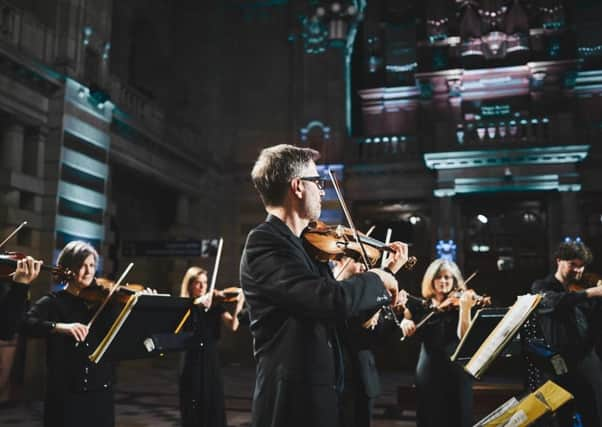Music review: Scottish Ensemble - Pause, Glasgow Science Centre


Glasgow Science Centre *****
The musicians were the flexible, open-minded virtuosi of the Scottish Ensemble; the scientist, one Dr Guido Orgs; and the programme, devised by Scottish Ensemble violinist Daniel Pioro, a fascinating potpourri of eccentric styles and thoughtful intrigue.
Orgs’ two short discourses were delightful in their intellectual simplicity – basic questions, straightforward answers. Around those and other complementary verbal considerations by director Jonathan Morton and Pioro, the Ensemble’s performances were though-provoking, atmospheric and remarkably decent-sounding for such an unconventional venue.
Advertisement
Hide AdAt one end of the chronology was Biber’s thoroughly quirky first Rosary Sonata and Handel’s silvery Sonata in D, both delivered with stylistic grace. Everything else was of more recent parentage, from John Cage’s seminal 1950s statement on silence, 4’33”, to the reflective nostalgia– Bach’s Passion Chorale seeped in a wash of contemporary haze – of Caroline Shaw’s Punctum.
Pioro’s own enthusiasms shone through, often in feats of violinistic brilliance. The relentless energy of Glass’ Knee Play 2 was electrifying, and Pioro’s brace of arrangements exploring the “divine” – a stirring Raga and a sublime meditation on the ancient hymn Veni Creator Spiritus – were delicious moments.
Pauline Oliveros’ 70 Chords for Terry was a fiery stimulant for the senses, Sørensen’s Shine you no more a dazzling folk inspired finale. Much to think about, loads to enjoy. - KEN WALTON